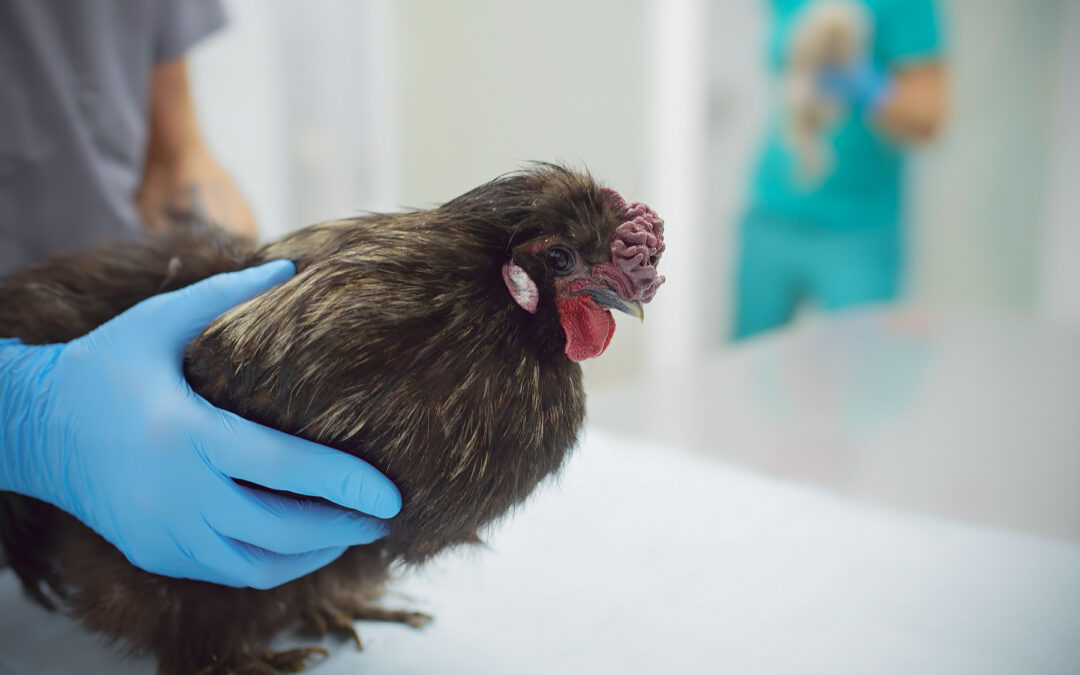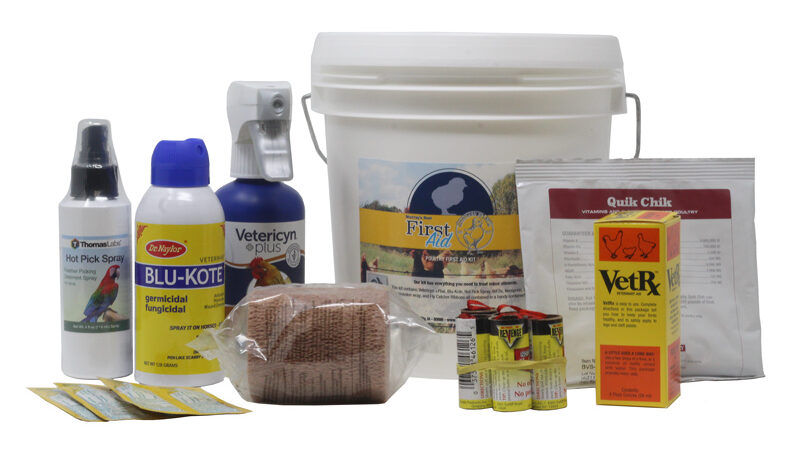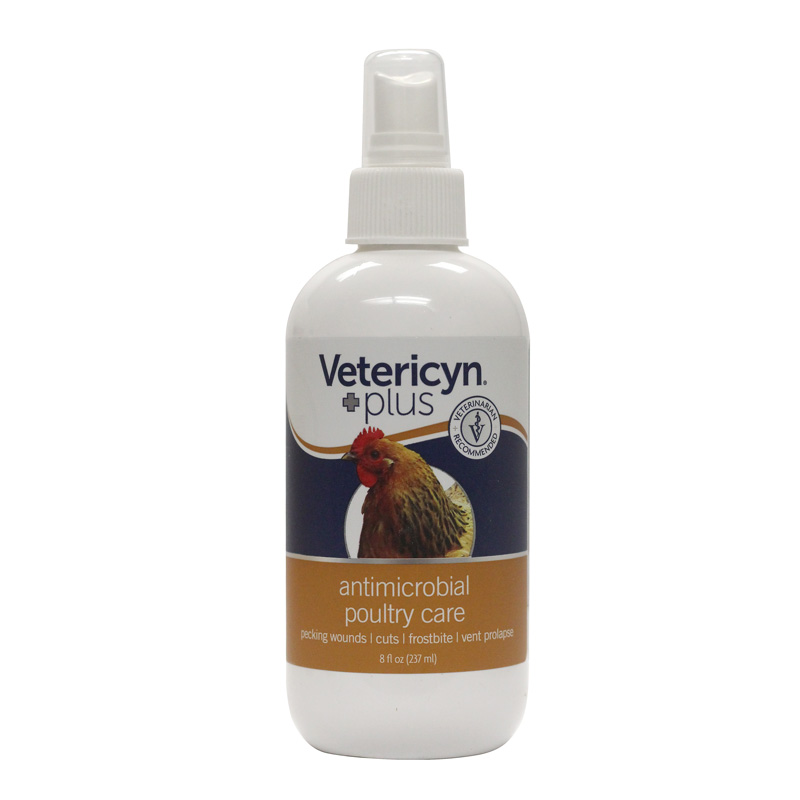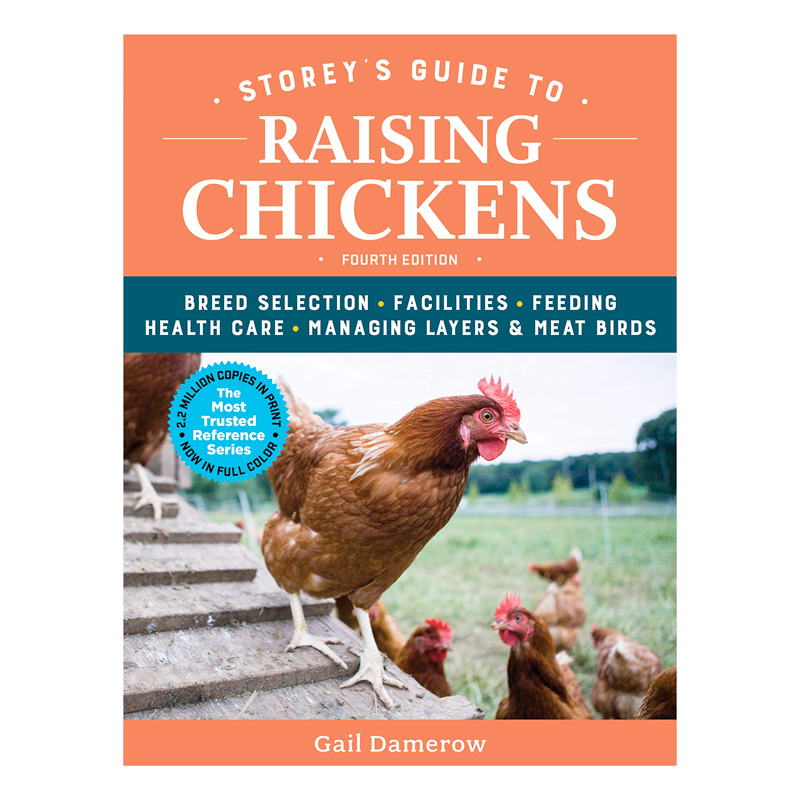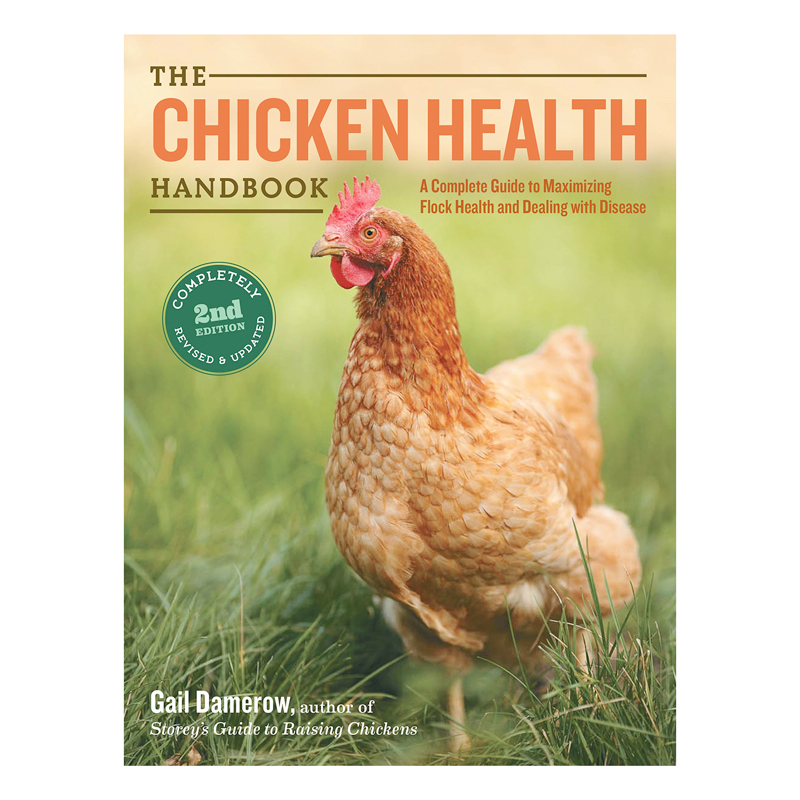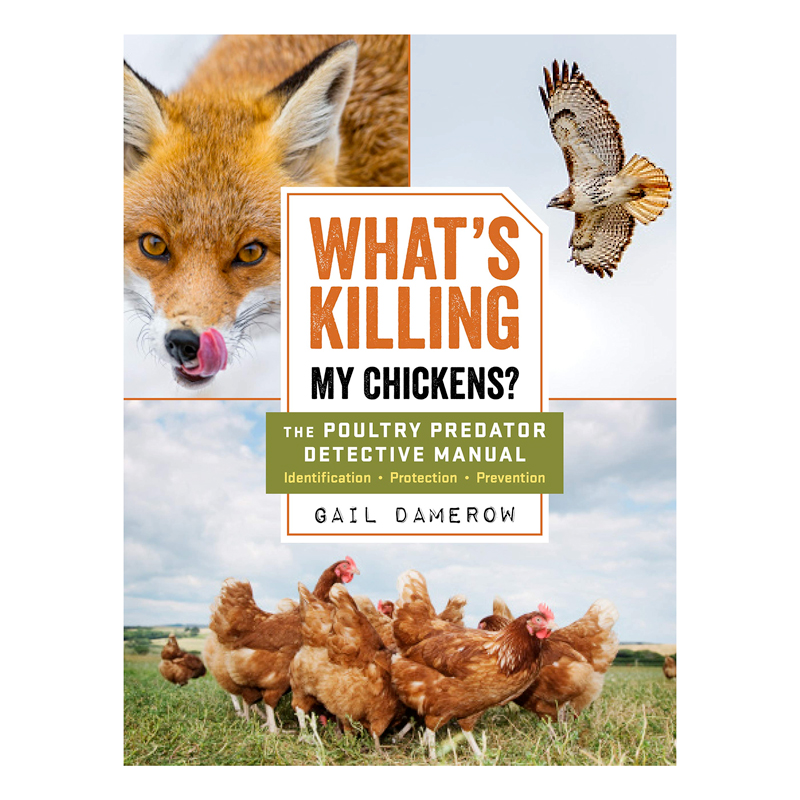No matter how careful you are about providing your chickens with a safe environment, sooner or later, you’ll discover one with a wound requiring treatment. Continuing our interview series with poultry expert and best-selling author, Gail Damerow, we ask her about treating a wounded chicken.
What are the most common causes of bleeding wounds?
“One common cause of bleeding wounds is a rooster treading on a hen while mating,” says Ms. Damerow. “Another cause is mauling by a dog or other predator. A third common cause is peck-order fighting,” she states.
“Any such injury must be treated promptly. Otherwise, it will attract picking that can quickly become outright cannibalism.”
What should you do if you discover that a chicken has been wounded?
“As soon as you discover the injured chicken, the first step is to isolate it from the rest of the flock,” Ms. Damerow advises. “If the injury is serious, gently pull a few feathers from around the edges so you can evaluate the damage so surrounding feathers won’t stick in the wound and hinder healing.
“Flush away dried blood, broken tissue, feather bits, and other debris. Cleaning out the wound allows you to better assess the damage. It also minimizes the chance of infection, and promotes healing.”
Can you flush the wound with plain water?
“In a pinch, you can use plain water,” Ms. Damerow states. “However, compared to plain water, a saline wound wash doesn’t sting. It also causes less tissue damage and discourages the growth of bacteria in the wound. For a really nasty wound, sodium hypochlorite has the advantage of killing most types of bacteria found in open wounds.
“Vetericyn Plus, one of the products in Murray McMurray’s Poultry First Aid Kit contains both saline and sodium hypochlorite. And it comes in a spray bottle, making it easy to apply.”
What is the procedure for flushing a wound?
“Steadily squirt the wash into the wound so it lifts out debris,” Ms. Damerow advises. “The more wash you use, the better the wound will be cleaned, and the less likely it is to become infected.
“Pick out stubborn pieces of debris with a pair of tweezers and keep flushing until you see no more debris. Then flush a little bit longer,” she states.
“Since a wound that remains moist will heal faster, flush a relatively minor wound daily. If the wound is draining or contaminated, flush it twice daily. Besides keeping the healing tissue moist, continuing with the wash for the first 5 days helps move dead cells away from healing tissue.”
Do you recommend any other treatment?
“After 5 days, the wound should be well on the way to healing,” Ms. Damerow asserts. “Leave the wound open, and keep an eye on it to make sure it stays clean. As the wound heals, a lanolin cream, or a thick ointment such as Ichthammol, will keep the tissue soft and elastic.
“Since flies spread bacteria on their feet, house your recovering patient where flies can’t get to the wound. Murray McMurray’s first aid kit includes helpful fly catcher strips.”
Should the chicken’s owner be aware of any potential complications?
“The chicken could pick at the wound, making it worse,” says Ms. Damerow. “In that case, cover the wound with a gauze pad and first-aid tape. Fashion a wrap with tape to hold the dressing in place, and to help keep the chicken from picking it off.
“Regularly change the dressing. Examine the wound each time to make sure it’s healing properly and doesn’t become infected.”
How can you tell if a wound becomes infected, and what should you do if it does?
“An infected wound might drain a murky fluid,” Ms Damerow states. “It may develop a yellow scab, or one that gets larger as time goes by. An infected wound might also become increasingly tender to the touch, become surrounded by increasing redness, or not heal within 2 weeks.
“You’ll need to remove the scab so you can treat the underlying infection. Repeatedly coat the scab with baby oil, or a thick ointment such as Desitin or Ichthammol, for a few days until the scab softens and comes loose. Flush out the infection, and retreat the wound as if it were fresh.”
Are there any types of wound the average chicken owner should not attempt to treat at home?
“A seriously injured chicken may go into shock,” Ms. Damerow cautions. “The more the chicken is handled, the deeper into shock it will sink. A veterinarian knows both how to avoid shock, and what to do if shock does occur.
“If the wound is really deep, especially if it extends into the chicken’s body cavity, the chicken should be seen by a veterinarian. Any wound that’s deep enough or wide enough to require stitches is best attended to by a vet,” Ms. Damerow advises.
“Similarly, if the wound is the result of an animal bite, my best advice is to take the chicken to a veterinarian. The vet can determine whether or not the chicken needs an antibiotic, and what kind, to prevent infection.
“Chickens are resilient animals. And wounds often look worse than they really are. So give it your best shot, and chances are pretty good the chicken will rapidly heal and be ready to rejoin the flock in no time.”

Gail Damerow has been keeping chickens for nearly 50 years and has written several books about them including Storey's Guide to Raising Chickens, The Chicken Health Handbook, The Chicken Encyclopedia, Hatching and Brooding Your Own Chicks, and What's Killing My Chickens? For more about Ms. Damerow, visit her blog at GailDamerow.com.
Gail Damerow's headshot by The Chicken Chick, Kathy Shea Mormino.

